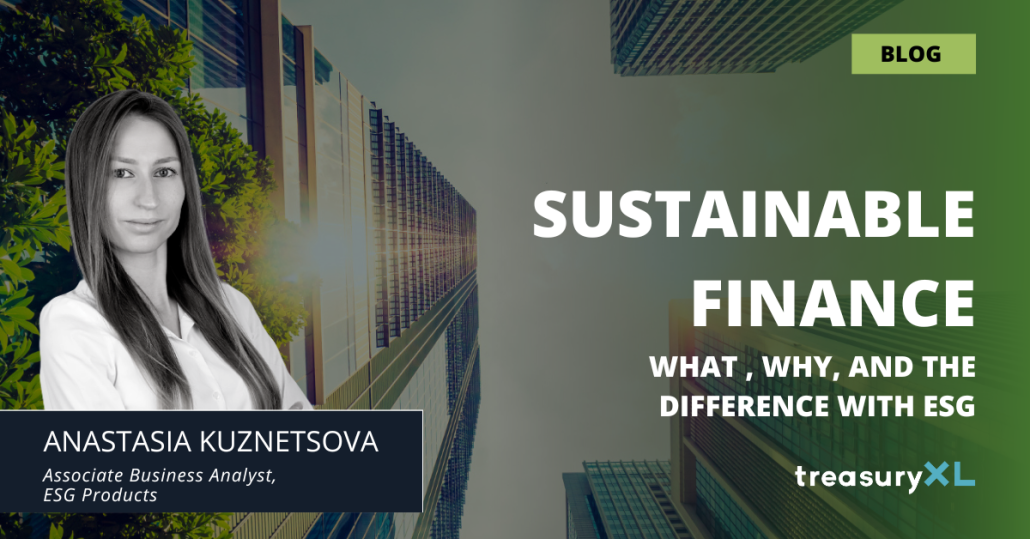In this blog by Anastasia, she discusses the nuances between sustainable finance and ESG, two concepts that are often used interchangeably but have distinct meanings.
What is Sustainable Finance?
There is no formal definition (established by regulators) for “Sustainable Finance”. Based on my experience in the ESG field, most decision-makers (such as CFOs, CEOs, asset managers) treat “Sustainable Finance” the same as “Responsible Investing” or “Sustainable Investing”, which is not always correct. I would say “Sustainable Finance” is the investment process that takes into account environmental, social and governance matters when making investment decisions. The goal is to consider not only the financial return of investments but also other aspects, including environmental and social issues.
Why is Sustainable Finance important?
Sustainable Finance is important because it helps to achieve ESG objectives and ensure a sustainable future for the next generations. Sustainable Finance provides financing for environmental and social projects and, thus, enables businesses and countries to become environmentally sustainable and socially responsible. Green and Social bonds as well as Sustainability-Linked bonds (SLBs) are among the most popular instruments used in Sustainable Finance. However, the range of investment products grows and new instruments that encourage a transition to a greener economy (e.g. debt-for-nature swaps ) are developed yearly. Thus, a global transition to more sustainable operations will not be possible without Sustainable Finance.
What is the difference between Sustainable Finance and ESG?
ESG is a very broad concept. It considers the impact of business operations on the environment and society, as well as the impact of environmental and social risks on business operations. Companies should determine material ESG aspects crucial for their long-term operations and develop corresponding strategies to address those ESG matters. On the other hand, Sustainable Finance is a tool for the implementation of those ESG-oriented strategies.
A hypothetical example could be a logistics company that performed a risk assessment and concluded that driving heavy-duty trucks is not viable for long-term business profitability not only because of a spike in diesel prices but also because of customer demand for environmentally friendly transportation. Thus, the logistics company may transform its business operations by taking a green loan to fund the replacement of conventional trucks with hydrogen-fueled trucks. This is an example of interaction between ESG and Sustainable Finance.
Summing up, ESG defines non-financial objectives for businesses, while Sustainable Finance helps to achieve them. Want to learn more about sustainable finance and how it can help you achieve your ESG goals? Feel free to get in touch!
Anastasia Kusnetsova
Associate Business Analyst, ESG products













